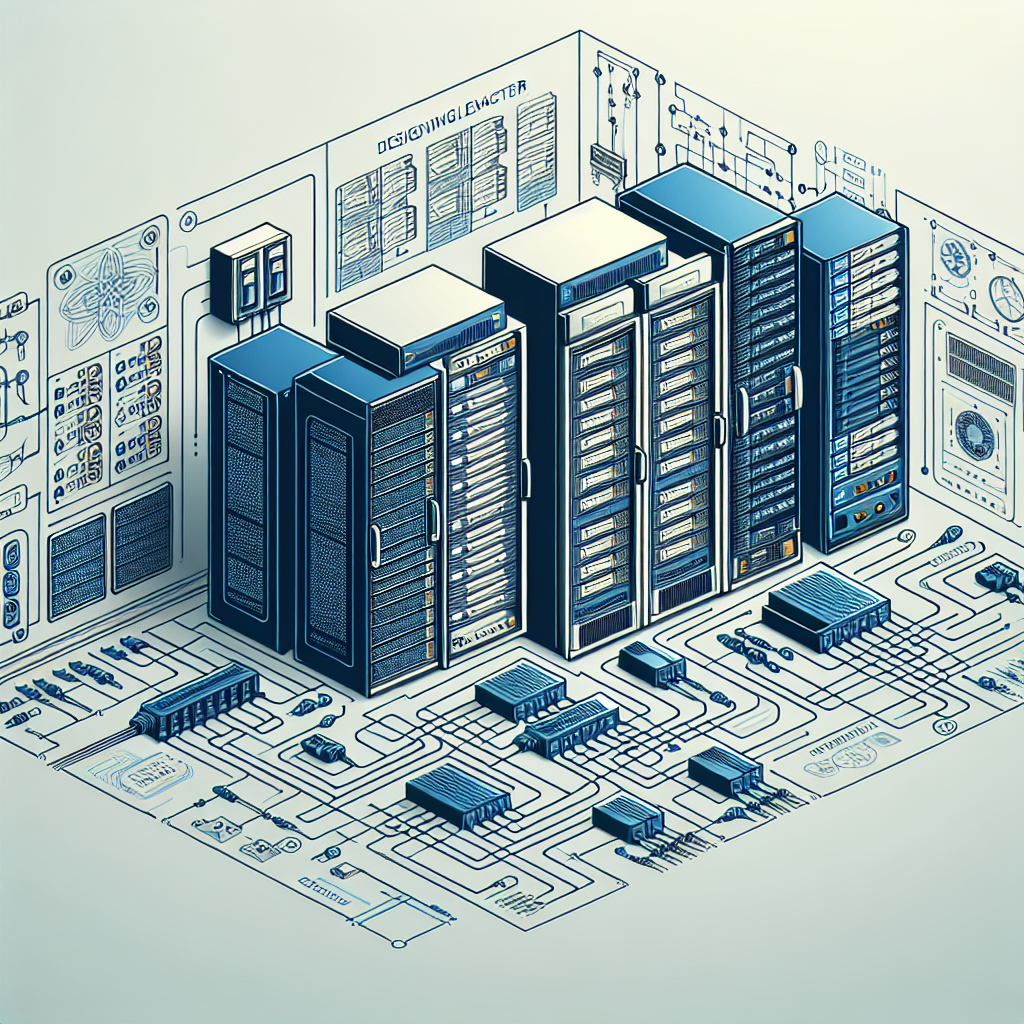Your cart is currently empty!
Key Considerations for Designing Data Center Electrical Systems

Designing a data center electrical system is a crucial part of building a reliable and efficient facility. There are several key considerations that need to be taken into account to ensure that the electrical system meets the needs of the data center. In this article, we will discuss some of the most important factors to consider when designing a data center electrical system.
1. Capacity Planning:
One of the first things to consider when designing a data center electrical system is the capacity requirements of the facility. This includes determining the amount of power that will be needed to support the servers, cooling systems, and other equipment in the data center. It is important to plan for future growth in capacity to ensure that the electrical system can accommodate any additional equipment that may be added in the future.
2. Redundancy:
Redundancy is a critical aspect of data center design, especially when it comes to the electrical system. Redundant power sources, such as backup generators and uninterruptible power supplies (UPS), are essential to ensure that the data center remains operational in the event of a power outage. Redundancy should be built into every aspect of the electrical system, from the power source to the distribution system.
3. Scalability:
Scalability is another important consideration when designing a data center electrical system. The electrical system should be designed to be easily scalable so that additional capacity can be added as needed without requiring a complete overhaul of the system. This includes ensuring that there is enough space for additional equipment, as well as the ability to easily add new power sources and distribution equipment.
4. Energy Efficiency:
Energy efficiency is a key consideration in data center design, as these facilities can consume a significant amount of power. When designing the electrical system, it is important to consider energy-efficient technologies, such as high-efficiency UPS systems and cooling equipment. By reducing the energy consumption of the data center, not only can operating costs be lowered, but also the environmental impact of the facility can be minimized.
5. Safety and Compliance:
Safety is paramount when designing a data center electrical system. The system should be designed to meet all relevant safety standards and codes, including those related to electrical wiring, grounding, and fire protection. Compliance with these standards is essential to ensure the safety of personnel working in the data center and to prevent accidents or fires.
In conclusion, designing a data center electrical system requires careful planning and consideration of several key factors. By taking into account capacity planning, redundancy, scalability, energy efficiency, and safety and compliance, data center operators can ensure that their electrical systems are reliable, efficient, and safe. By investing in a well-designed electrical system, data center operators can minimize downtime, reduce operating costs, and ensure the reliability of their facilities.

Leave a Reply